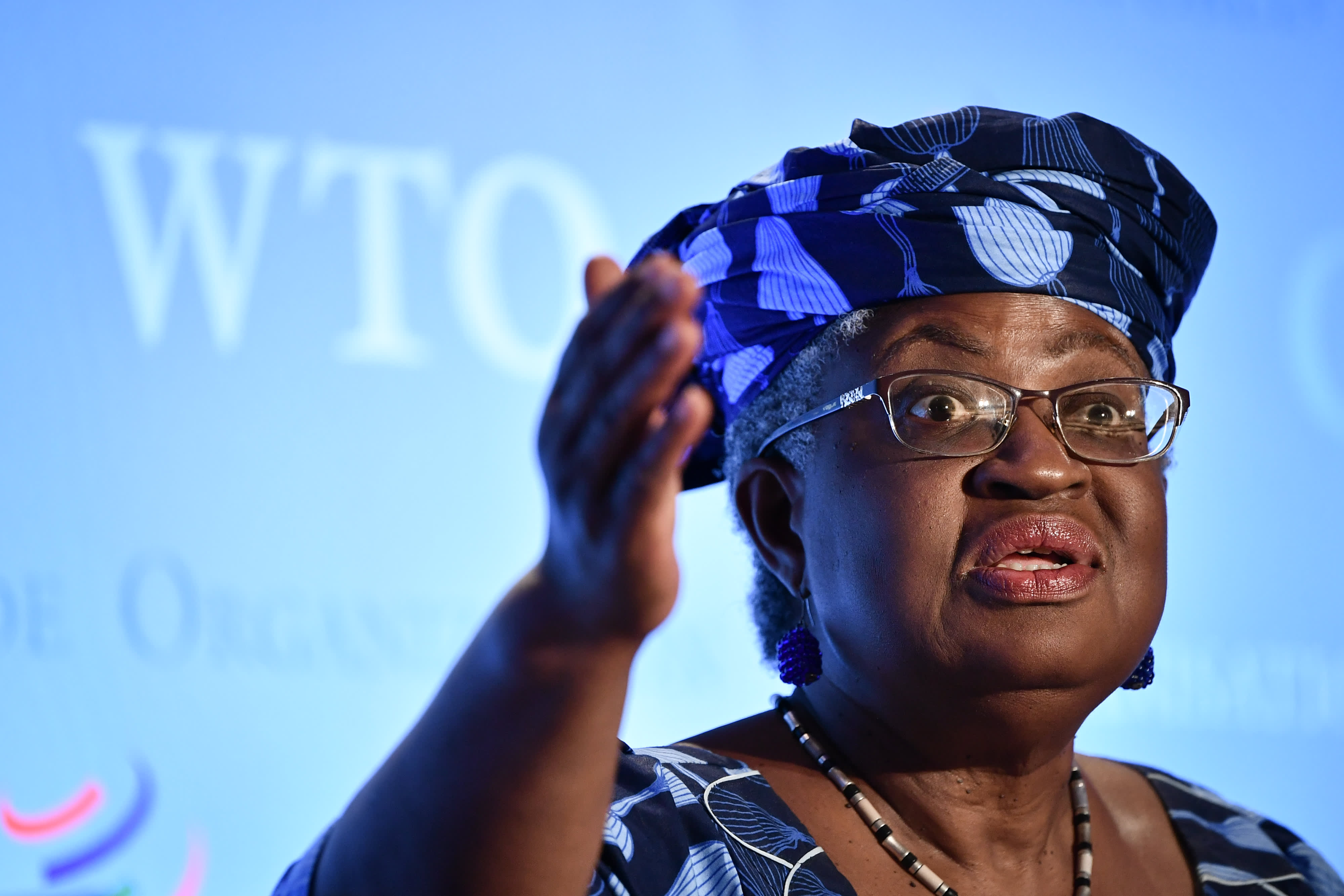WTO chief ‘very concerned’ about the unequal distribution of Covid vaccines

Ngozi Okonjo-Iweala, WTO Director General, speaks during a press conference.
FABRICE COFFRINI | AFP | Getty Images
The unequal distribution of Covid vaccines worldwide could have a dampening effect on the economic recovery, the World Trade Organization chief warned on Thursday, saying she is “very concerned” about the matter.
Richer nations have hoarded the highest number of limited Covid shots, while many low-income nations have struggled to get their hands on the much-needed vaccines.
Data collected by the WTO, the World Health Organization and the International Monetary Fund show that whereas the U.S. has secured 248% of produced vaccines as a percentage of its population, this rate is only 30% for Mali and 56% for Kenya.
To be sure, just 7% of Africa’s population have been fully vaccinated against the coronavirus, according to data compiled by Our World in Data. The European Union and the U.S., meanwhile, have fully vaccinated around 67% and 58% of their populations respectively.
“The level of inequity is quite high,” Ngozi Okonjo-Iweala, Director-General of the WTO, told CNBC on Thursday in an exclusive interview.
She noted that the economic recovery in the wake of the pandemic is linked to two determinants: the amount of monetary and fiscal stimulus and the access to vaccines.
“I am very concerned that if we continue with the inequity that will have a dampening effect on (the) recovery in those countries,” the Nigerian-born official said.
The question of vaccine access comes shortly after health authorities in South Africa reported a new Covid variant: omicron.
Health experts have long argued that the coronavirus will continue to thrive as long as parts of the world lack vaccines.
‘Painful decision’ to delay meeting
In the wake of the new variant, some countries re-imposed travel restrictions. This was the case of Switzerland, which went as far as imposing a 10-day quarantine for travelers from certain countries.
“They should not have been closed so hastily,” Okonjo-Iweala said about border restrictions, highlighting this action could be a disincentive for nations to share Covid-related information.
The trade organization was once again forced to postpone a key meeting scheduled for this week due to the discovery of the new Covid variant.
“It was a very painful decision,” Okonjo-Iweala said. The delay is seen as a blow to hopes of temporarily waiving patents for Covid vaccines and achieving more equitable access to vaccines.
The WTO has also been under pressure to update the way it operates. The institution has often been criticized for not being fit for purpose as the international trade landscape has evolved and there have been mounting disputes between nations and trading blocs, such as the U.S. and China, and the U.S. and Europe.
Okonjo-Iweala has previously said that reforming the WTO will be “very tough because of the lack of trust among members,” according to Reuters.
“Even though the meeting was postponed through no fault of the WTO’s, we are continuing work at pace,” she told CNBC, adding that it is “not quite correct that nothing is moving.”




